A balance sheet offers a snapshot of a company’s financial standing by detailing its assets, liabilities, and equity at a specific point in time. This report serves as a valuable tool for investors, stakeholders, business owners, and creditors to make well-informed financial decisions. Odoo's accounting module simplifies generating balance sheets for a range of dates, and one can personalize the reports to show data in various formats, allowing users to analyze financial data in simpler terms.
Odoo 18 Balance Sheet
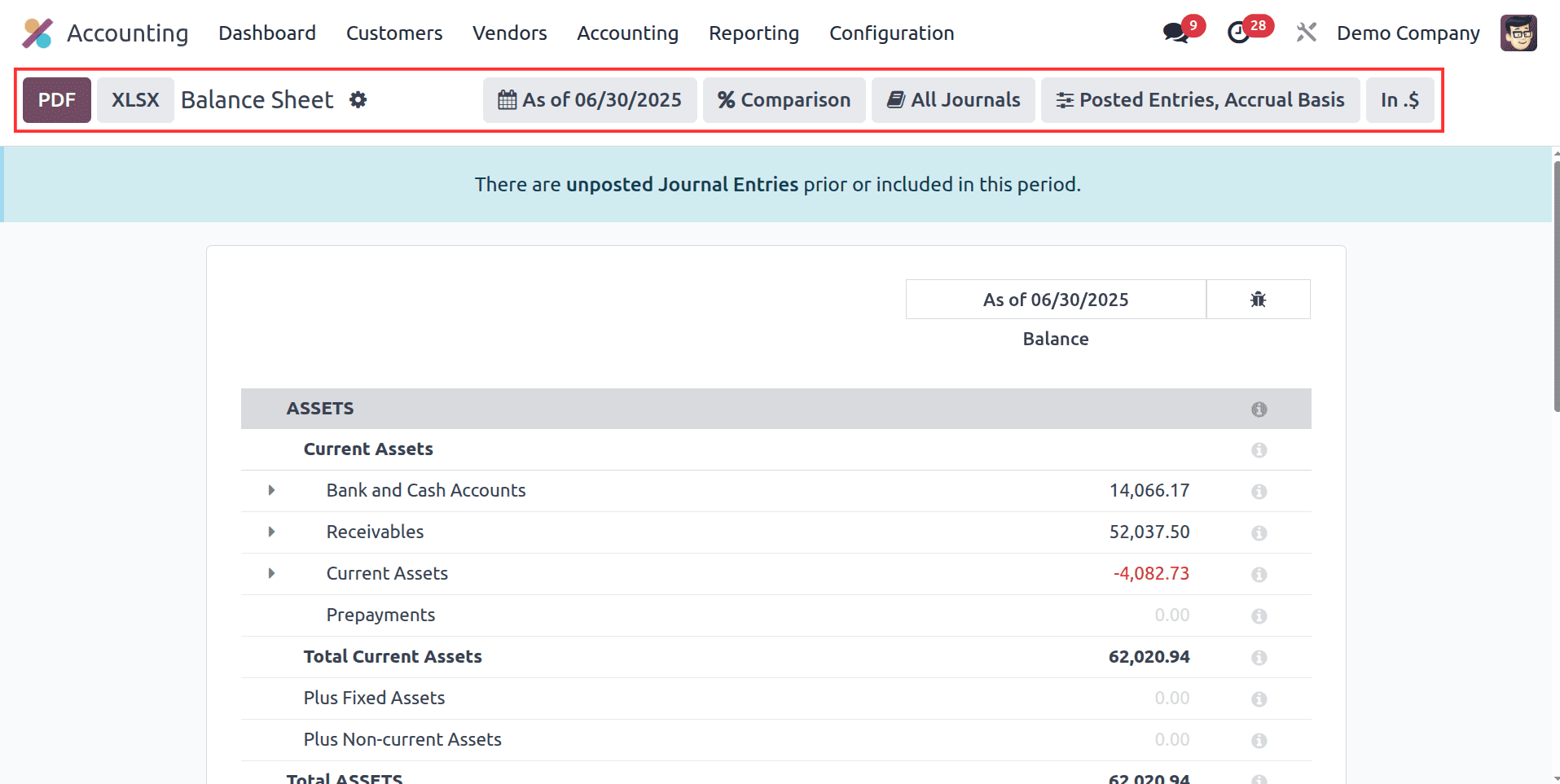
Exporting
By selecting the options icon, you can choose to export the report in XLSX or PDF formats. By copying the report to the Documents module, we can export it. Below is a screenshot of the Balance Sheet report printed in the PDF format.
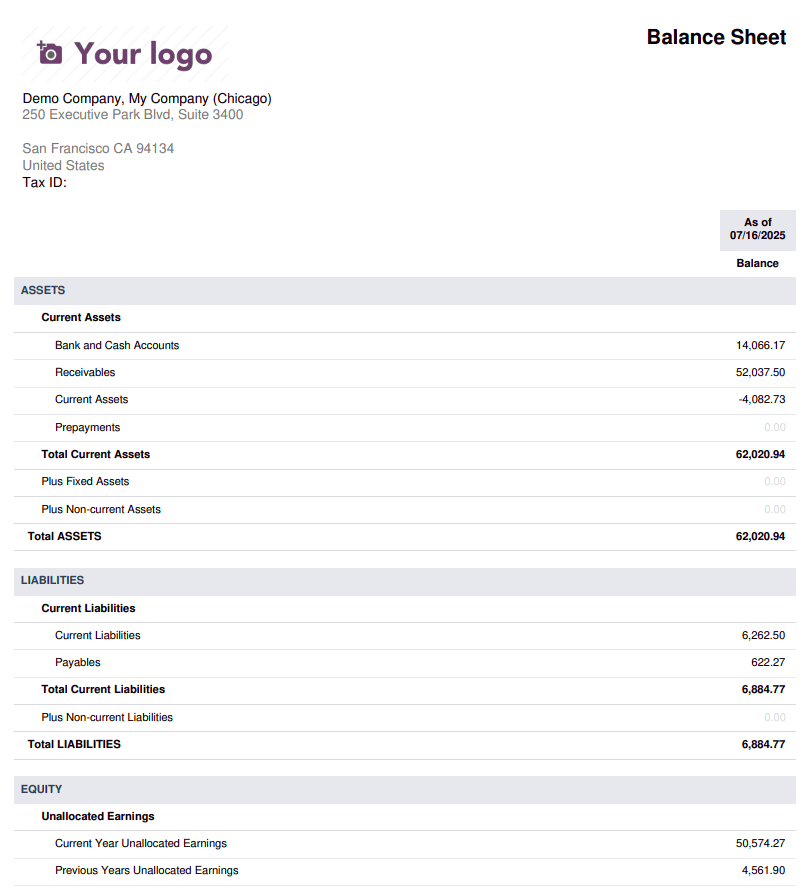
Filtering based on dates
The report can be filtered to display data according to a particular date, month, quarter, or year.
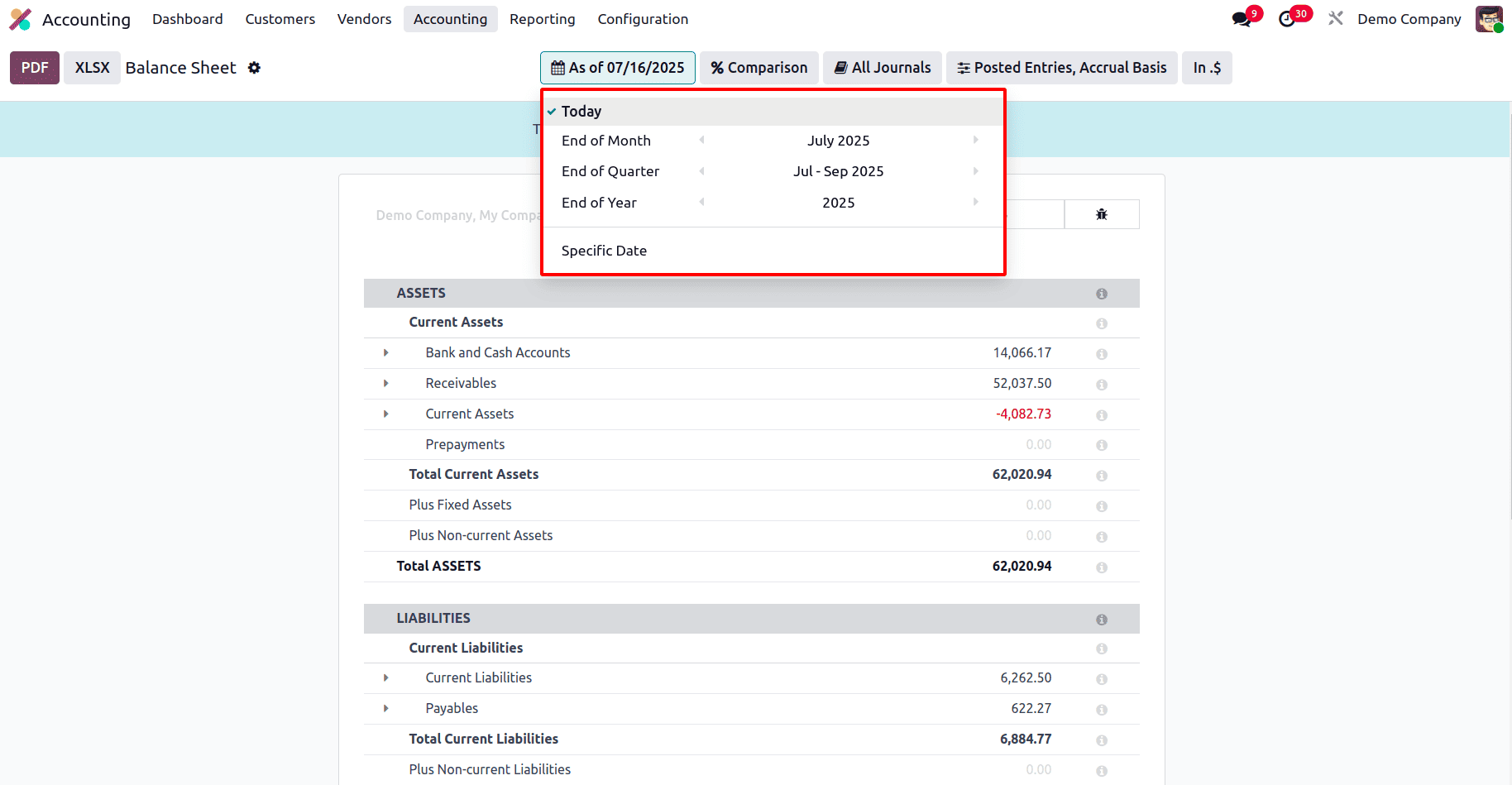
Compare based on periods.
With the comparison option, we can compare our report to a previous period, the same period last year, or a specific date. The periods can be ordered in ascending or descending order.
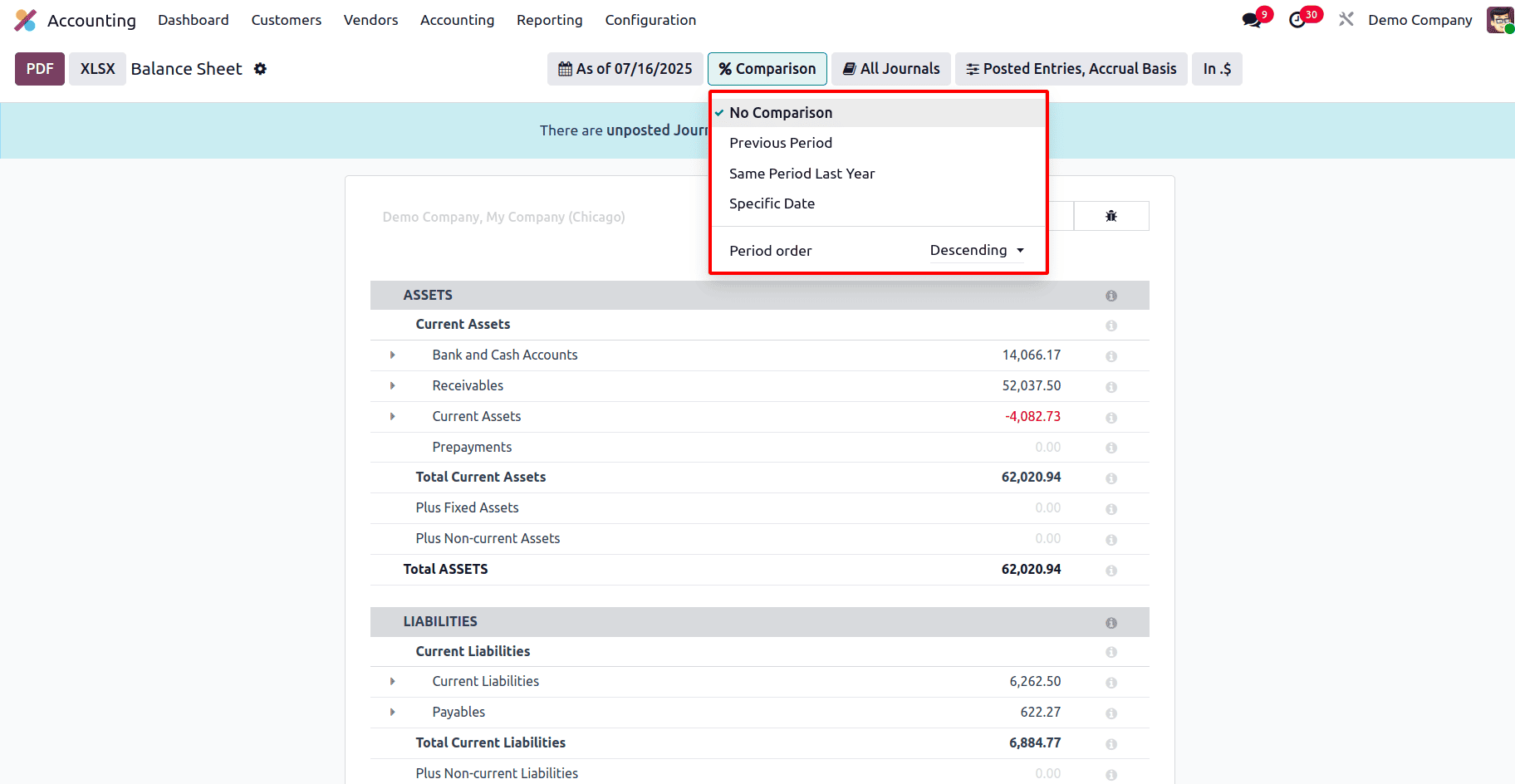
Journal Selection
We can filter the report by specific journals, allowing us to display accounts impacted by a journal entry for that particular journal. By default, all journals are shown.
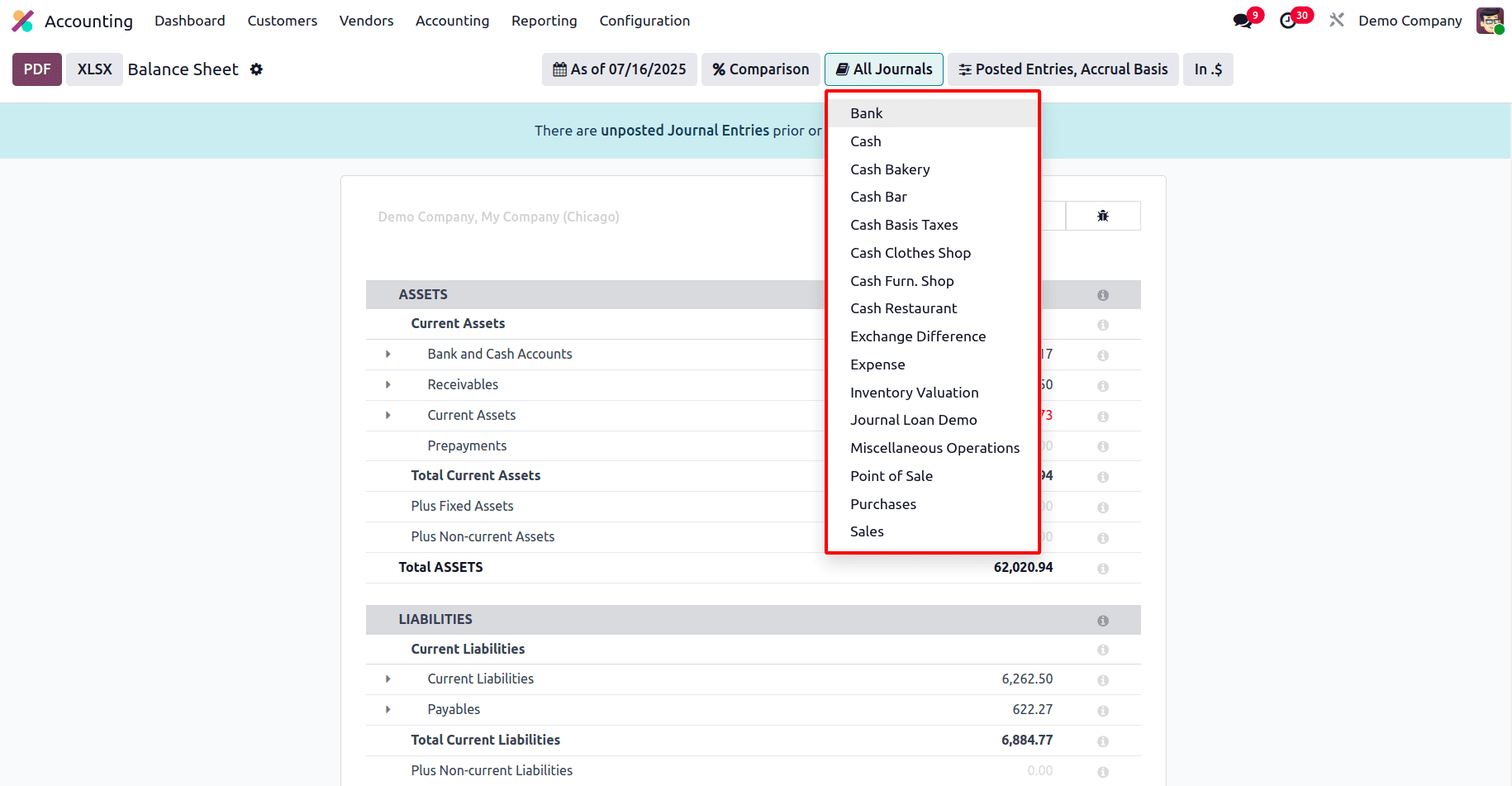
Filtering based on posted or drafted entries
We can filter information based on posted or drafted journal entries, as well as entries using the cash basis technique. Additionally, we have options to split the report horizontally, fold and unfold items, and conceal lines with a balance of zero.
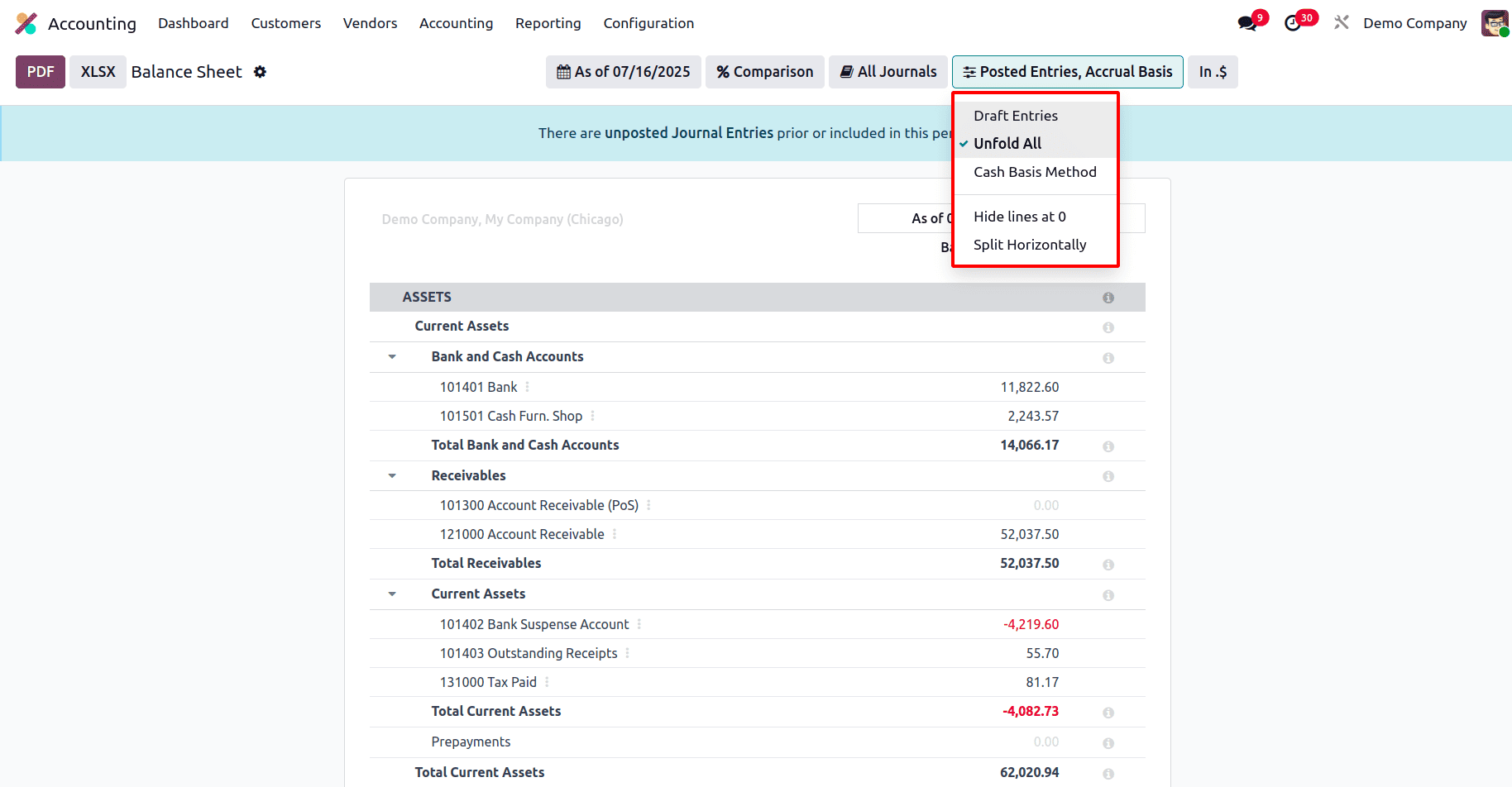
Currency Format
We can choose to display the amount in different formats, like
- In .$ - It shows the amount with two decimal points in the report
- In $ - It shows the amount as an Integer
- In K$ - It shows the amount as thousands
- In M$ - It shows the amount in Millions
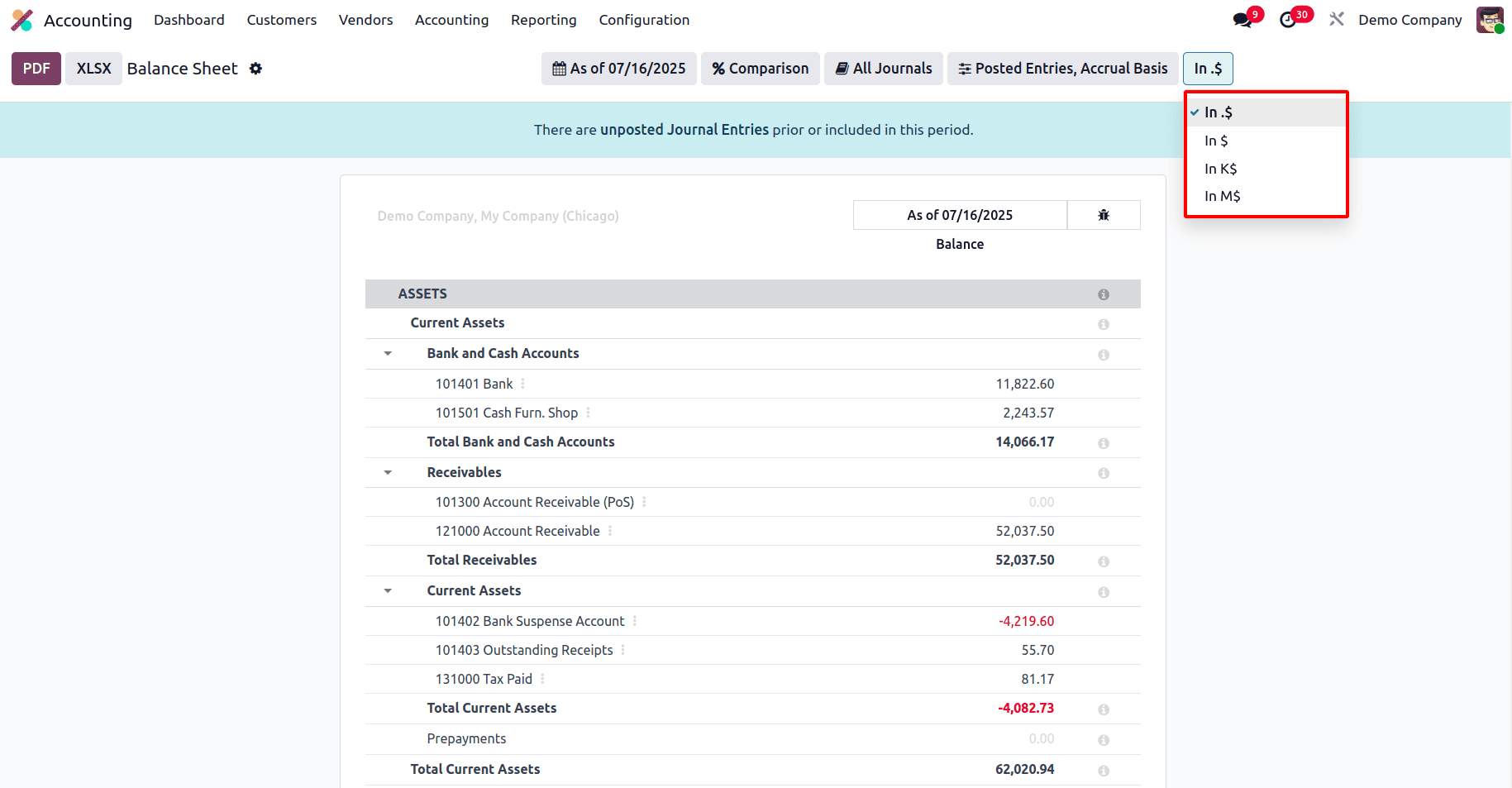
Understanding the Report
The balance sheet's three main components are equity, liabilities, and assets.
Assets
Everything that a business holds that has monetary value and may be utilised to produce future gains is considered an asset. They are once more divided into current assets and those that are not.
- Current Assets - These assets are anticipated to be turned into cash, sold, or used up within a year or during the company's normal operating cycle.
- Non-Current Assets - Non-current assets are resources that provide economic benefits to a business for a period exceeding one year.
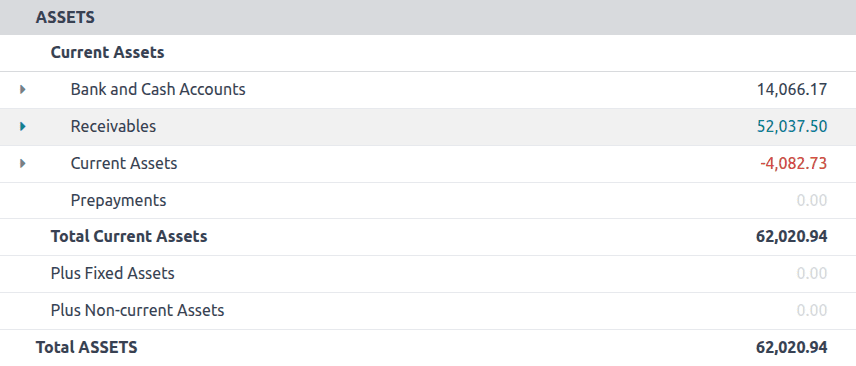
The Assets section comprises accounts such as Receivables, Bank and Cash, Current Assets, Non-Current Assets, Prepayments, and Fixed Assets.
Example record

The current amount of the accounts receivable is $52,900.00. The accounts receivable will be impacted by the invoice we create.
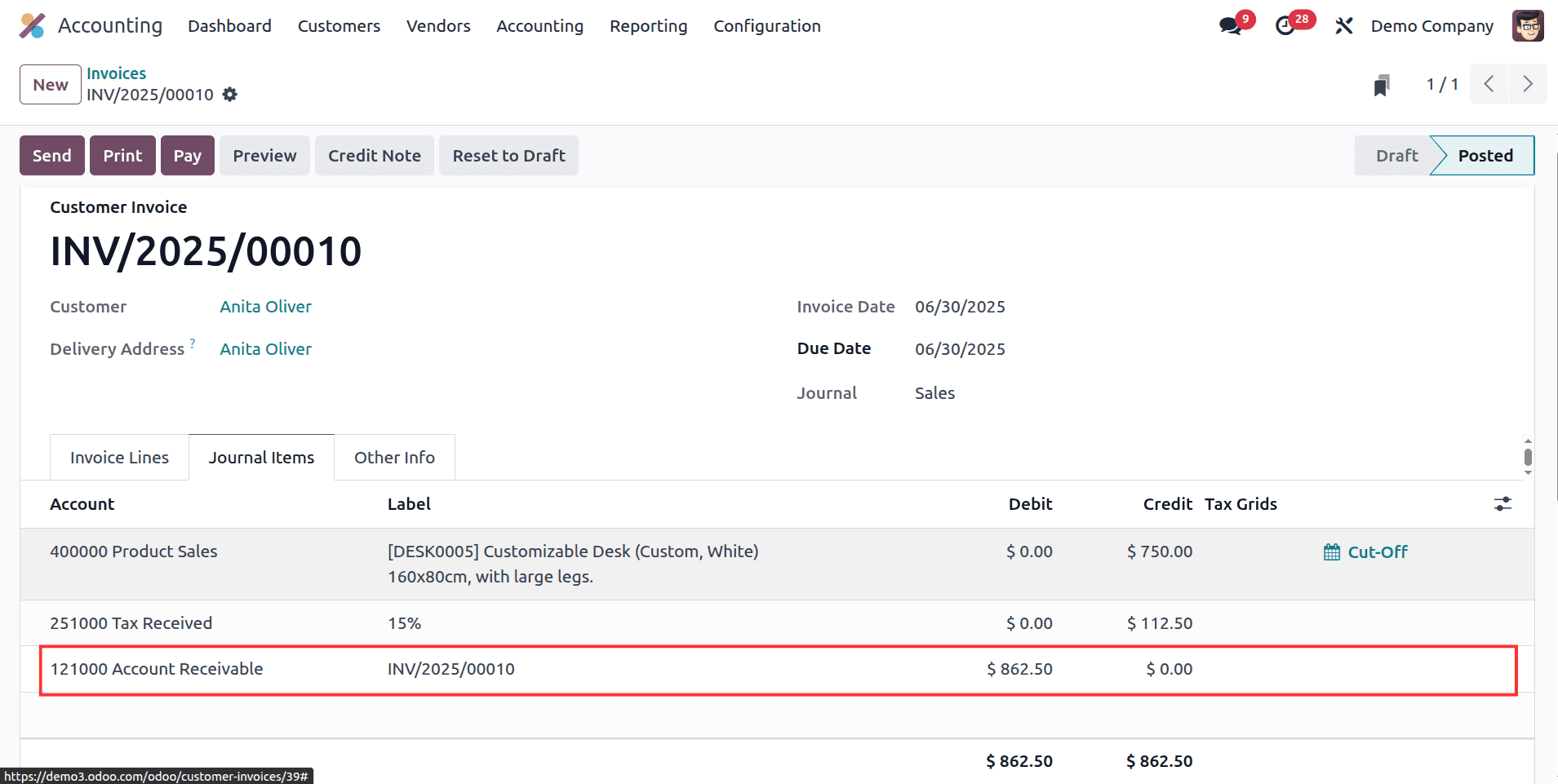

- We may now observe that there is a $862.50 increase in the amount of accounts receivable.
Liabilities
- The opposite of assets, liabilities indicate what a company owes to other parties. Again, they are divided into Current and Non-Current Liabilities.
- Debts that the company expects to pay off within a year or throughout its normal business cycle are known as current liabilities.
- Non-current liabilities are obligations that are not expected to be settled within the next 12 months.

Accounts with their type Payable, Credit Card, Current Liabilities, and Non-Current Liabilities come under the Liabilities section.

Clicking on the three vertical dots for an account reveals an option to view the General Ledger report for that account and to Annotate text for that account.
Example record

Account Payable now has a $622.27 balance. We will generate a vendor bill that will impact the account payable.
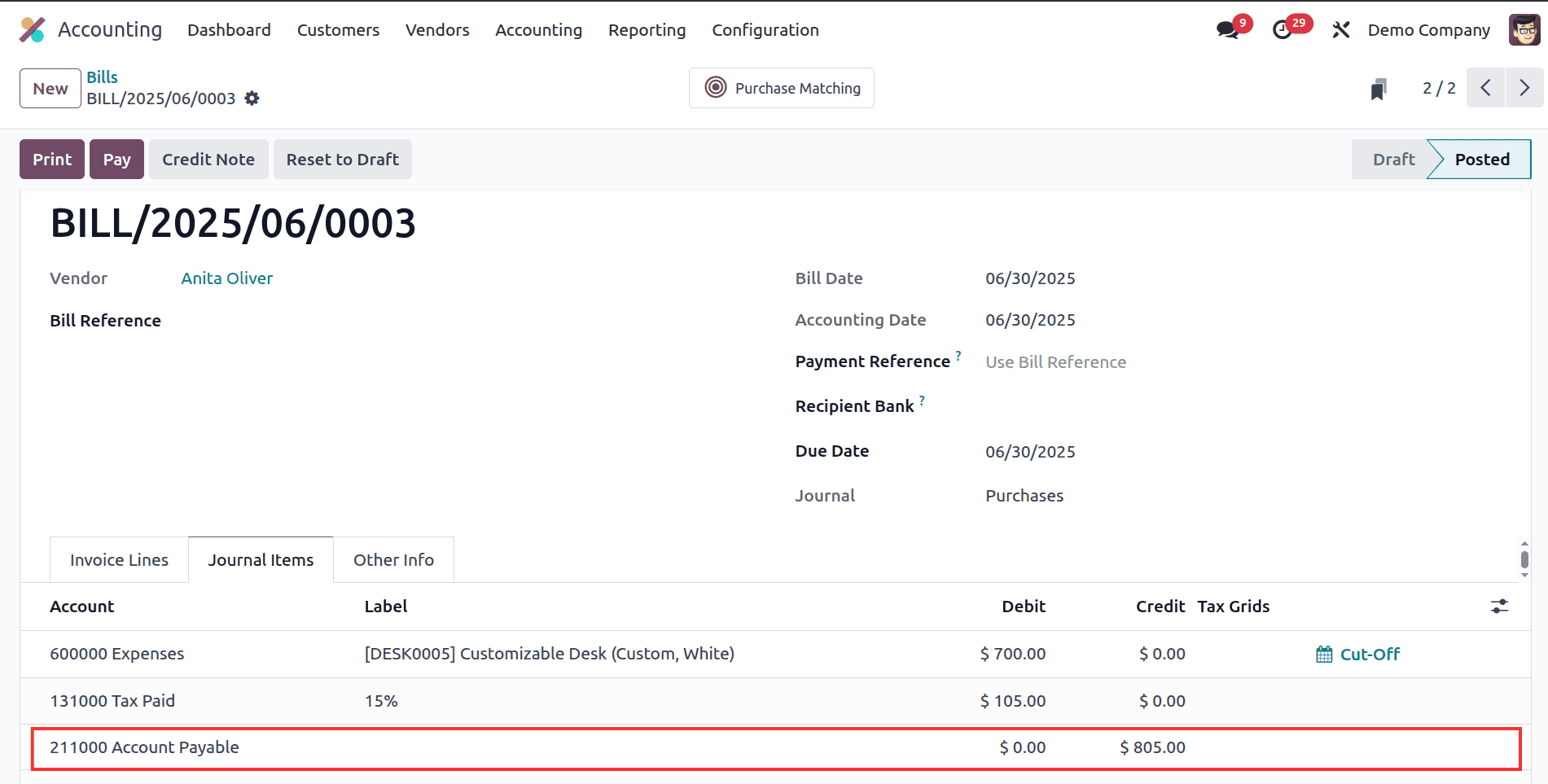
Next, let’s review the balance of the Accounts Payable.

The balance has increased by $805.00
Equity
Equity reflects the owners’ residual interest in the company’s assets after settling all liabilities. To put it simply, it's what the company owes its owners.
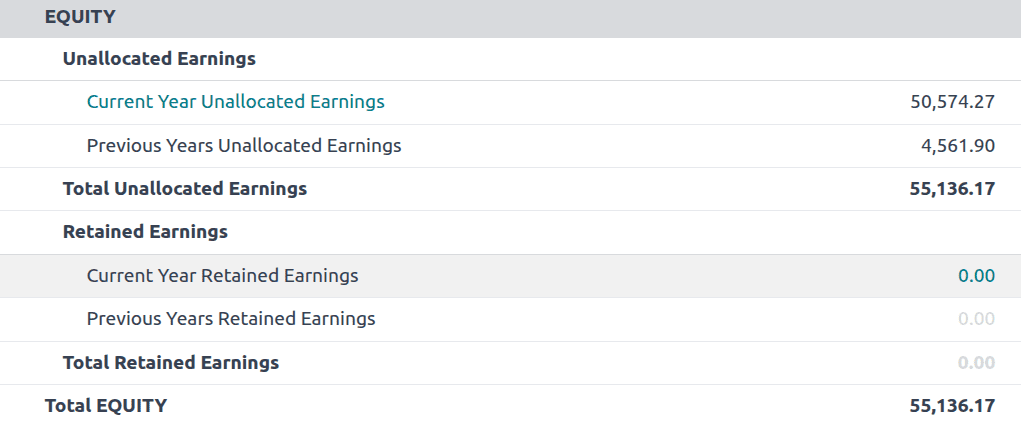
The Equity Section displays accounts with the type Equity & Current Year Earnings. Sections Unallocated Earnings and Retained Earnings are also visible here.
Unallocated earnings represent the current year’s net profit or loss, which have not yet been moved to retained earnings. In essence, they are earnings that a business has made but hasn't yet determined how to allocate. The unallocated earnings from prior years are displayed beneath that. Current Year Unallocated Earnings shows the Net Profit, and clicking on the link takes you to the Profit and Loss report.
The total net profits that a business has held onto throughout time are known as retained earnings. The unallocated earnings can be retained when closing a fiscal year.
Clicking on the ‘i’ icon on a line shows some metadata, like the formula used for calculation.

In conclusion, the Balance Sheet report in Odoo's Accounting module is an excellent resource for businesses seeking accurate and thorough financial data. Its multi-currency capability, customisable interface, and comprehensive data segmentation provide users with the power to make informed choices. Using a strong financial reporting system, such as Odoo 18, can be crucial in helping businesses overcome the difficulties of the modern, dynamic marketplace and promote long-term growth and profitability.
To read more about An Overview of Balance Sheet Reporting Section Available Inside the Odoo 17 Accounting, refer to our blog An Overview of Balance Sheet Reporting Section Available Inside the Odoo 17 Accounting.